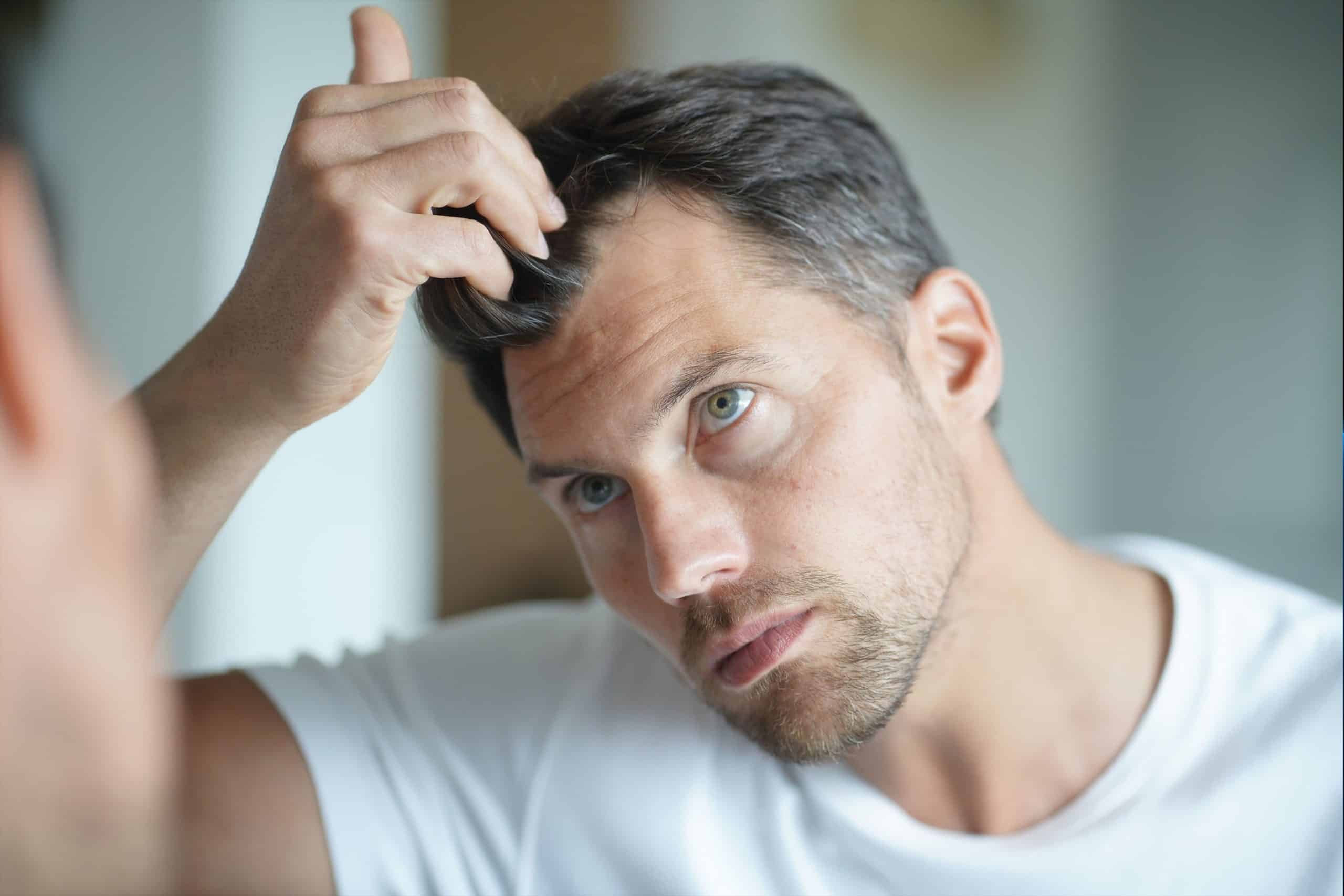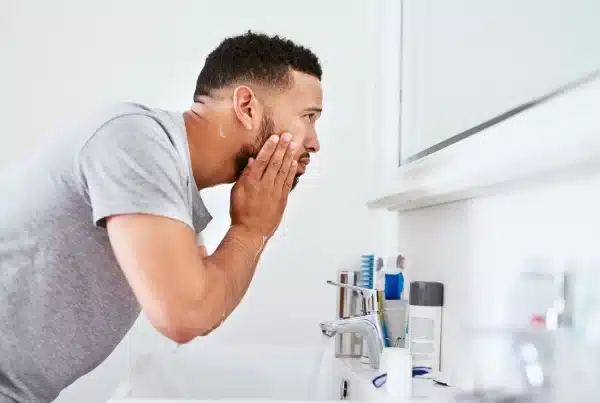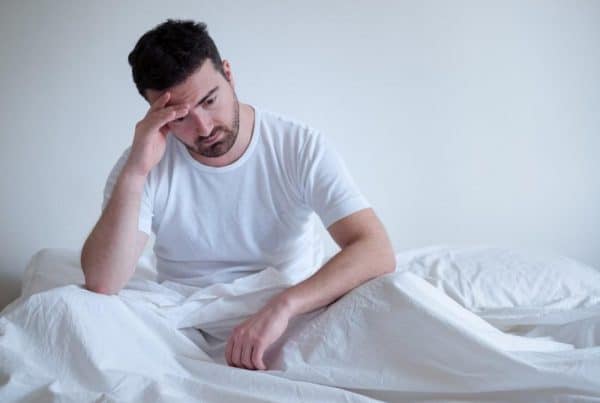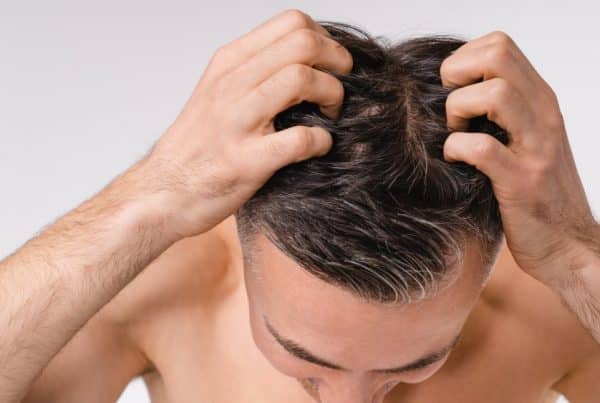What is hair loss?
Hair loss (alopecia) affects just the scalp or the entire body. It can also be temporary or permanent. Hair loss results from hormonal changes, medical conditions, genes, or aging. Although anyone can lose their hair, it is more common among men. If you are noticing hair loss, talk to your doctor about hair regrowth.
What are the symptoms?
Signs and symptoms of hair loss may include:
- Gradual thinning on top of the head: This is the most common type of hair loss, affecting men as they age. Men typically notice hair begins to recede at the hairline on the forehead.
- Circular or patchy bald spots: Some individuals lose hair in circular or patchy bald spots on the scalp, beard, or eyebrows. Often times, the skin is itchy or painful before the hair falls out.
- Sudden loosening of hair: A physical or emotional shock can cause hair to loosen. Handfuls of hair can come out when showering, brushing, or pulling on the hair. It is often temporary.
- Full-body hair loss: When hair is lost all over the body, this is typically a cause of a condition or treatment, such as chemotherapy.
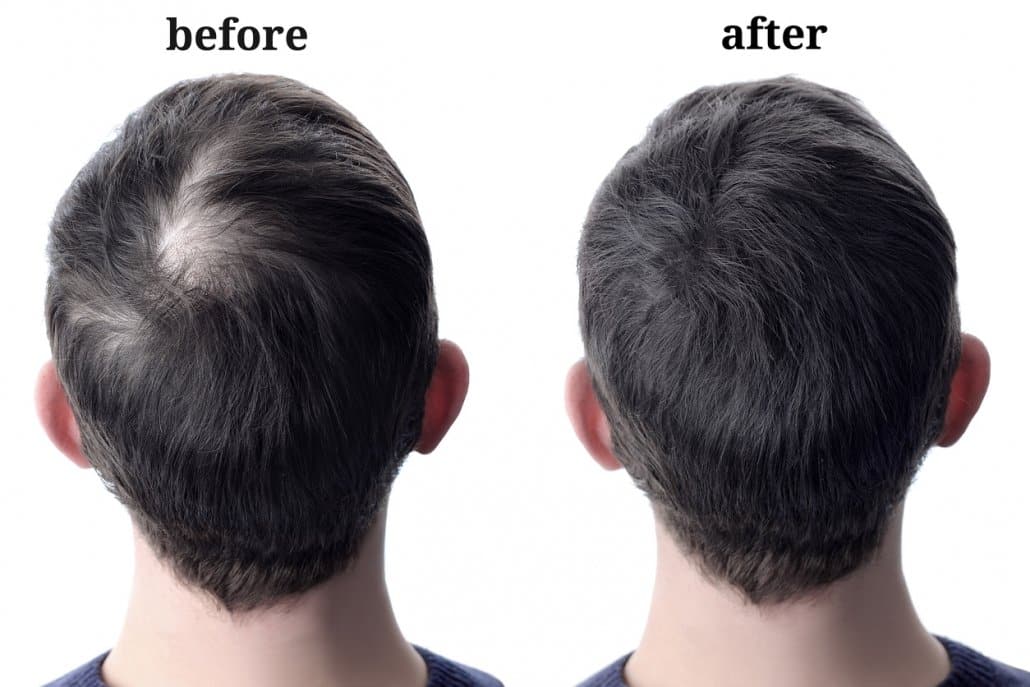
What are hair loss treatments?
Effective treatments for hair loss are available and vary depending on the type of hair loss and possible causes. Some common treatments for hair loss are:
Changing your hair care
Some hair care and hair styles can really damage your hair, which leads to hair loss. Talk to your dermatologist or trusted physician to learn about the best ways to treat your hair are.
Vitamins, minerals, & other supplements
Sometimes, blood tests reveal that you may not be receiving enough biotin, iron, or zinc. Your doctor or dermatologist may suggest you take supplements. It is also possible you may not be getting enough protein, so you might be instructed to boost your intake. Make sure to consult your trusted health care provider before taking supplements, as it can be harmful to the body when levels are normal.
Hair transplant surgery
The most common type of permanent hair loss occurs on the top of the head. A hair transplant surgery is to make the most of the hair you have left, by taking hair from part of the head that has hair and transplanting it to a bald spot. This can occur because each patch of hair has one to several hairs. Due to the pain and discomfort, this procedure will be conducted with a sedation medication.
Microneedling
A microneedling device has hundreds of tiny needles which are used to stimulate hair growth. Microneedling is often used while taking Minoxidil in order to get the best results.
Injections
In order to help hair to regrow, a medication is injected into the bald or thinning spots on the scalp. These injections are usually given every 4 to 8 weeks as needed.
Laser Therapy
Laser therapy is safe and painless, but often requires multiple treatments. It has been shown to improve hair density in hereditary hair loss, alopecia areata, or hair loss due to chemotherapy.
Medication
- Minoxidil (Rogaine) is an over-the-counter medication that comes in liquid, foam, or shampoo forms. This product should be used for early hair loss, as it cannot regrow an entire head of hair. Apply the product to the scalp twice daily in order to prevent further hair loss and to stimulate hair regrowth.
- Finasteride (Propecia) is a prescription drug for men that is taken once daily as a pill. Men show signs of new hair growth and slowing hair loss.
- Compounded medications are sold at Preston’s Pharmacy with a prescription. Our medication is created specifically to your history, symptoms, and type of hair loss.
Consider talking to your doctor or a Preston’s Pharmacy pharmacist to learn how a compounded medication for hair regrowth may be right for you!
It is important to remember that no one kind of person is the same, so it is important to find the treatment that works for you.

